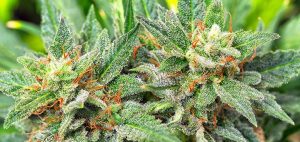Despite still being an illegal drug in many countries, cannabis is slowly gaining support for its potential pain relief benefits from thousands of people worldwide. The legal cannabis industry is growing rapidly, with a predicted market worth of $21 billion by 2021. 26 countries and 29 US states have legalised its use for medicinal purposes, increasing the demand for a quality assured product.
This commercialisation of the industry is leading to a ‘growing up’ of the supply chain, which provides opportunities for the analytical instrumentation industry. This was eloquently explained by Josh Crossley of jCanna in his Nexus1 presentation ‘Cannabis quality control testing and research updates’ at Pittcon 2018. Josh firmly confirmed that ‘reefer madness’ is a thing of the past, and the growing adoption of cannabis both for medicinal and recreational use, is creating an industry need for standardisation.
The Cannabis Alliance, a group designed to promote transparency in the industry, has prioritised testing standardisation in 2018. The goal, as with other substances, is to have an agreed scientific method in place to test for the purity and potency of all cannabis products, either for its medicinal pain relieving properties or for its psychoactive properties.
Although testing cannabis is very much in its infancy, companies who are prepared to invest in the relevant technologies are already reaping the rewards. Shamanics, a cannabis oil extraction company based in Amsterdam, has been applying gas chromatography testing in its labs to test the primary cannabinoids – the chemical compounds that give cannabis its medicinal or recreational properties. tetrahydrocannabdoil (THC) is known for its psychoactive properties and will promote the feeling of getting high. Cannabdiol (CBD) actually works to counteract the high and has other useful properties such as anti-inflammatory and neuroprotective qualities. Finally cannabinol (CBN) has numerous health benefits including pain relief, anti-insomnia, antibacterial, anti-inflammatory and anti-convulsive. The main goal of the testing is to identify and quantify the THC/CBD ratio.
But why test cannabis where there is no legal requirement to do so? Bart Roelfsema, one of the founders of Shamanics commented: “it is very liberating to actually see what you are doing. If you are a grower, a manufacturer or a seller, it is always reassuring to see what you have and prove or disprove quality.” This type of rigorous scientific testing is the only way to provide reliable quality products to consumers for either medicinal or recreational use. Whilst it is not currently required by law, Shamanics believes that testing with gas chromatography is a way of bringing about positive change in the industry – a change that will see laws passed to govern the production and use of cannabis in all markets.
What is clear is that the industry is maturing at a rapid rate. Production of this somewhat controversial drug is being legalised in more countries around the globe and demand for cannabis oil and other refined products is on the increase. The crossover between science (testing for purity and potency) and nature (a product that has natural pain relieving properties) is clearly where the future of this much misunderstood natural substance lies.
Follow us on Twitter and LinkedIn to stay up-to-date with our British Science Week activities!
By Scott Girling-Heathcote, Account Manager at The Scott Partnership.





